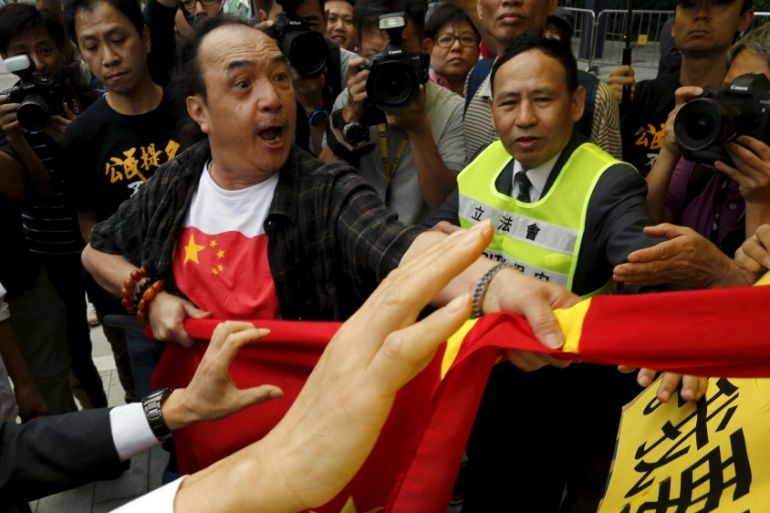Hong Kong election candidates to be screened
Opposition says electoral blueprint for leadership elections in 2017 allows China to eliminate unwanted candidates.

The Hong Kong government has given politicians their first look at a long-awaited electoral blueprint for selecting the city’s next leader, a plan that reflects China’s desire for a tightly controlled poll despite calls for more democracy.
Deputy leader Carrie Lam said on Wednesday that the first-ever public vote for the post of chief executive in 2017 would be held in “strict compliance” with a ruling by China’s National People’s Congress last August.
That ruling stated that candidates for chief executive must first be approved by a loyalist committee. This decision sparked more than two months of protests late last year.
Lam said that voters in 2017 would choose from two to three candidates chosen by a 1,200-strong nominating committee. That committee would reflect the current make-up of the pro-Beijing election committee, which up until now has chosen the city’s leader, she said.
Chief Executive Leung Chun-ying called the resolution “a huge step in promoting the democratic development of Hong Kong”.
But pro-democracy legislators have vowed to veto the plan, and walked out of the chamber in protest after the government’s presentation.
Rival protests
Hundreds of protesters gathered outside the Legislative Council. A large group waved Chinese flags in support of the proposal, saying Hong Kong must move forward.
A smaller group held yellow umbrellas, which have become a symbol of the democracy movement. They demanded “true universal suffrage” and called for Leung to step down.
Security was forced to step in as the rival groups clashed verbally.
Protesters speaking to Al Jazeera warned of another wave of demonstrations in the coming months.
Student leader Joshua Wong from the Scholarism movement said this could include another “Occupy Central” protest such as the one that shut down parts of the city during last year’s protests.
Tens of thousands of demonstrators blocked major roads in four key districts in the city last year, demanding Beijing grant a truly democratic vote and open nominations for Hong Kong’s next chief executive in 2017.
Their pleas were ignored and police forcefully cleared away the last of the protest encampments in mid-December.
The government needs to persuade four or more opposition legislators to support the electoral blueprint to reach the two-thirds majority needed to get it approved.
Al Jazeera’s Sarah Clarke, reporting from Hong Kong, said the government will now embark on a two-month-long publicity campaign to get the wider public on board before the bill is put to a vote in July.
“The government’s electoral reform plan has deeply divided the people of Hong Kong,” she said.
Democracy activists who launched last year’s “Occupy” movement describe a vote without open nominations as “fake democracy”.
While Hong Kong is part of China, it is governed as a special administrative region, which means it has a different legal system and enjoys freedoms not permitted in the mainland.